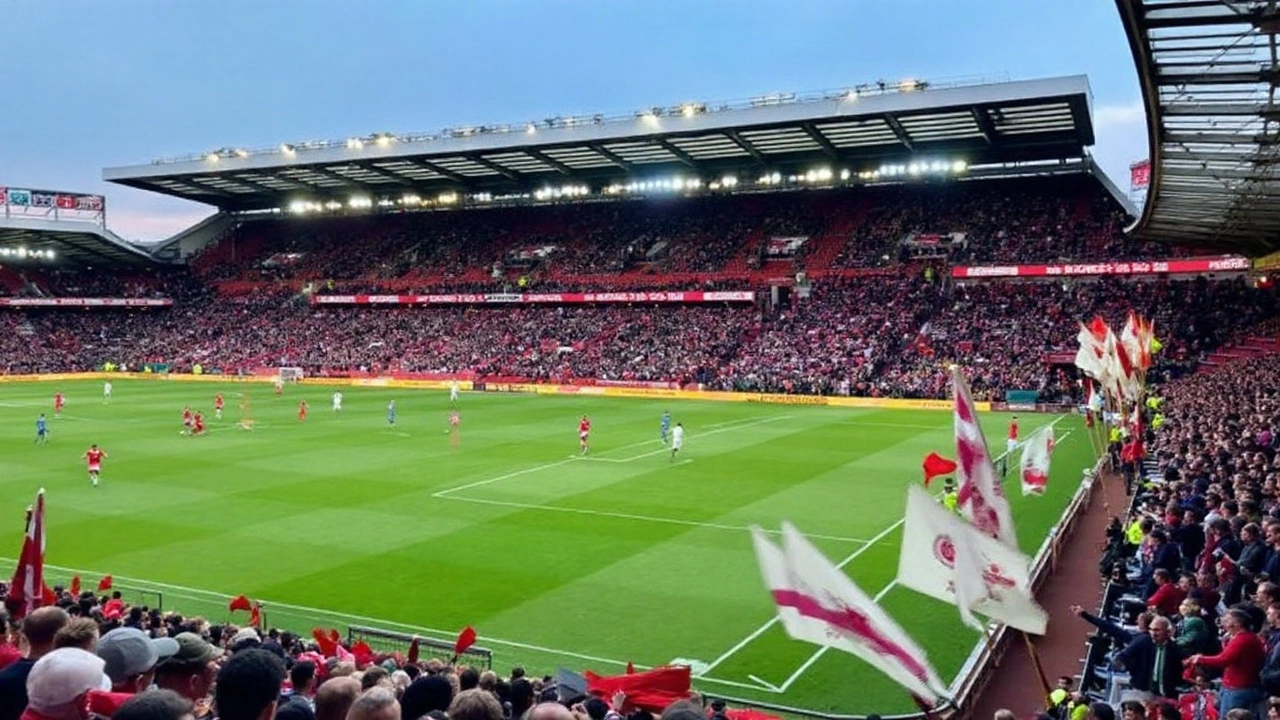Premier League debut – what it means and why it matters
When you hear the phrase Premier League debut, the first official appearance a player makes in England's top football division, you instantly picture a youngster stepping onto the turf, a seasoned pro finally getting his chance, or a loan player looking to prove his worth. Also known as a first‑team appearance, it marks the moment a player moves from training grounds to the big stage, and it often sets the tone for the rest of their career.
The Premier League, the 20‑team professional football league that sits at the pinnacle of English football provides the backdrop for every debut story. A debut is usually Premier League debut for a player who has risen through a youth academy, the club-run development system that trains players from a young age or arrived on loan from another club. The manager decides when to hand the player his first minutes, often based on training performance, tactical needs, or injury cover. A successful debut can include a debut goal, the first goal a player scores in the Premier League, which instantly endears them to fans and boosts confidence. Fans, in turn, react with chants, social media hype, and often a surge of merchandise sales, turning a single appearance into a cultural moment.
Why a debut matters for clubs and players
Clubs treat a debut as a strategic milestone. It encompasses talent development, squad rotation, and market value. A youngster who debuts early may attract attention from bigger clubs, raising the selling club’s profit potential. Conversely, a veteran’s debut after a high‑profile transfer can signal a shift in the team’s playing style. Managers require an eye for timing; a poorly timed debut might expose a player to harsh criticism, while a well‑planned one can forge a lasting bond with the fan base. The debut also requires mental resilience, as players must handle pressure from media, opponents, and their own expectations.
Statistically, most Premier League debuts happen between ages 17 and 21, but there are outliers—players making their first appearance in their late twenties after long spells abroad. Loan deals are a common pathway: a player leaves a parent club, gains experience in the Championship or abroad, and returns ready for a debut. Injuries also open doors; a sudden vacancy due to a defender’s knock can fast‑track a youth defender’s first minutes. These patterns show that a debut is rarely an isolated event; it is linked to transfer market, the system of buying, selling, and loaning players activity and to the club’s overall squad planning.
From a fan’s perspective, a debut fuels narrative. Social media trends often spike when a promising youngster takes the field, and commentators love to compare the new entrant with club legends. The first appearance can also affect ticket sales; clubs sometimes promote debutants in marketing materials to draw crowds. In media terms, a debut influences coverage of the match, shaping headlines and post‑match analysis. This ripple effect highlights how a single event can impact multiple aspects of the football ecosystem.
On the technical side, coaches analyze debut performances using metrics like pass completion, distance covered, duels won, and expected goals (xG). These data points help decide whether the player stays in the squad, goes back to the reserves, or earns a longer contract. Modern clubs blend traditional scouting with analytics, meaning a debut is also a data collection opportunity.
Overall, a Premier League debut is more than just a line on a résumé. It connects the player’s personal journey, the club’s strategic goals, the manager’s tactical choices, the fan base’s emotional investment, and the broader market dynamics. By understanding these links, you can appreciate why a simple first appearance can become a turning point for careers and clubs alike.
Below you’ll find a curated list of articles that dive deeper into debut stories, youth development pathways, manager tactics, and fan reactions. Whether you’re a budding player, a coach, or just a fan hungry for insight, the posts ahead break down the many angles of that unforgettable first whistle.
Florian Wirtz Liverpool Odds: What to Expect in His First Anfield Season

